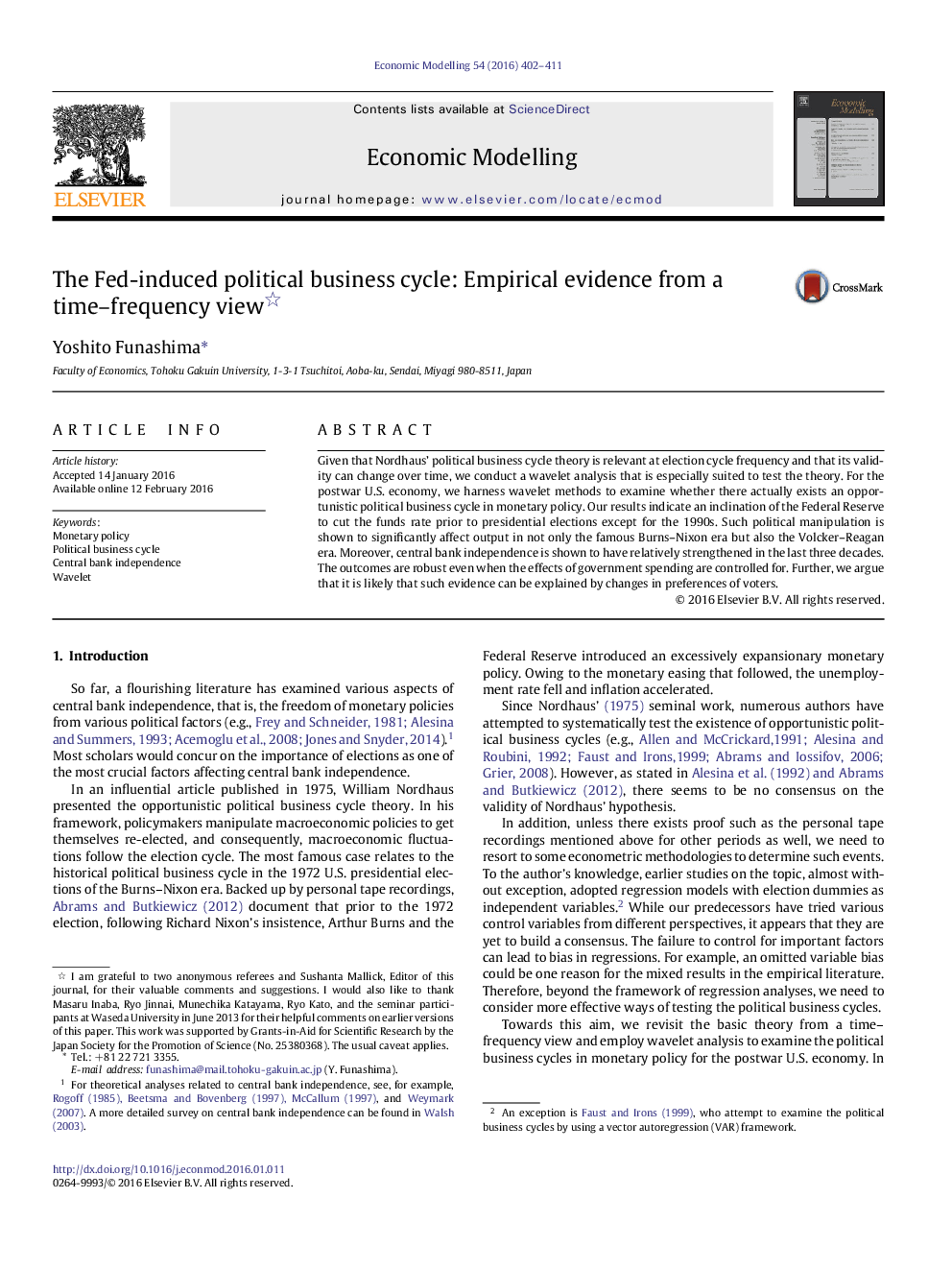| Article ID | Journal | Published Year | Pages | File Type |
|---|---|---|---|---|
| 5053401 | Economic Modelling | 2016 | 10 Pages |
Abstract
Given that Nordhaus' political business cycle theory is relevant at election cycle frequency and that its validity can change over time, we conduct a wavelet analysis that is especially suited to test the theory. For the postwar U.S. economy, we harness wavelet methods to examine whether there actually exists an opportunistic political business cycle in monetary policy. Our results indicate an inclination of the Federal Reserve to cut the funds rate prior to presidential elections except for the 1990s. Such political manipulation is shown to significantly affect output in not only the famous Burns-Nixon era but also the Volcker-Reagan era. Moreover, central bank independence is shown to have relatively strengthened in the last three decades. The outcomes are robust even when the effects of government spending are controlled for. Further, we argue that it is likely that such evidence can be explained by changes in preferences of voters.
Related Topics
Social Sciences and Humanities
Economics, Econometrics and Finance
Economics and Econometrics
Authors
Yoshito Funashima,
